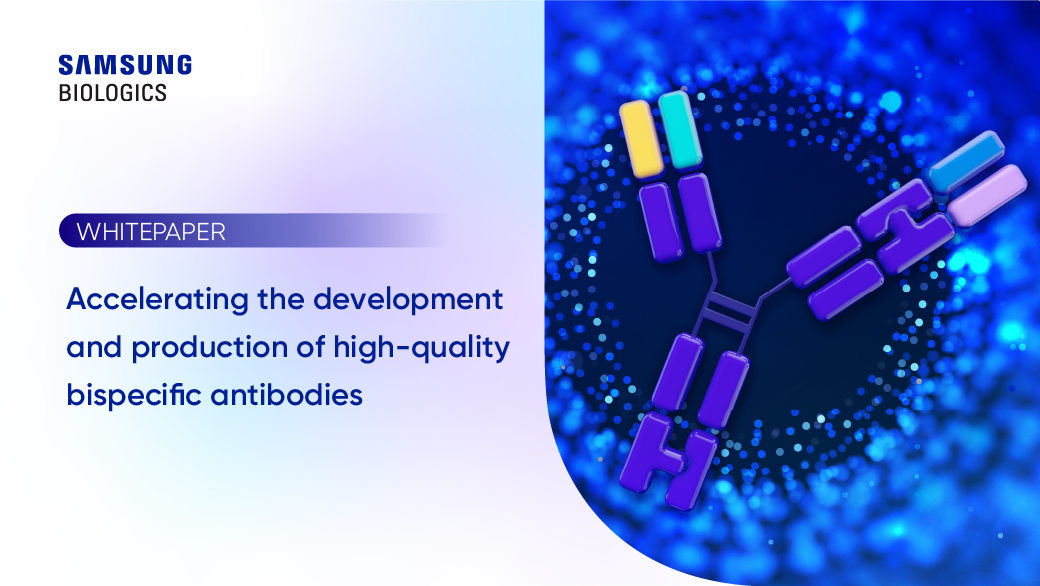Accelerating the development and production of high quality bispecific antibodies

Bispecific antibodies (bsAbs) are unique, next-generation antibodies with dual specificity that create numerous opportunities for therapeutic applications, including diseases that had been previously untreatable. Despite their potential, bsAbs pose significant development and manufacturing challenges owing to their complex molecular structure. Samsung Biologics' S-DUAL™ platform addresses these challenges by combining a knob-in-hole design with an asymmetric antibody structure, achieving excellent pairing and significantly enhancing productivity and quality. This whitepaper discusses an upstream process optimization initiative that led to notably increased productivity and a dramatic improvement in lactate metabolism, thereby enhancing the commercialization readiness of bsAb programs from the development phase.
Finding an Integrated Drug Development Partner
Bispecific antibodies are unique, next-generation antibodies with dual specificity, creating considerable opportunities for therapeutic applications, such as redirecting T cells to tumor cells, blocking two different signaling pathways simultaneously, dual targeting different disease mediators, and delivering payloads to targeted sites. However, as bsAbs are much more complex molecules than traditional mAbs, they present unique manufacturing challenges, including increased incidence of mispairing, the manufacture of undesired fragments, and increased levels of aggregates.
Having a development and manufacturing partner with experience and proven expertise in bispecific antibody development is critical. They can provide strategies for these advanced moleculesl, since creating high-producing and high-yielding processes for this class of products is a complex endeavor. Samsung Biologics embraces its responsibility to overcome these challenges, driving the development of innovative bsAb therapies that offer therapeutic options to patients with currently unmet needs.

Bispecific antibodies (bsAbs) are unique, next-generation antibodies with dual specificity that create numerous opportunities for therapeutic applications, including diseases that had been previously untreatable. Despite their potential, bsAbs pose significant development and manufacturing challenges owing to their complex molecular structure. Samsung Biologics' S-DUAL™ platform addresses these challenges by combining a knob-in-hole design with an asymmetric antibody structure, achieving excellent pairing and significantly enhancing productivity and quality. This whitepaper discusses an upstream process optimization initiative that led to notably increased productivity and a dramatic improvement in lactate metabolism, thereby enhancing the commercialization readiness of bsAb programs from the development phase.
Finding an Integrated Drug Development Partner
Bispecific antibodies are unique, next-generation antibodies with dual specificity, creating considerable opportunities for therapeutic applications, such as redirecting T cells to tumor cells, blocking two different signaling pathways simultaneously, dual targeting different disease mediators, and delivering payloads to targeted sites. However, as bsAbs are much more complex molecules than traditional mAbs, they present unique manufacturing challenges, including increased incidence of mispairing, the manufacture of undesired fragments, and increased levels of aggregates.
Having a development and manufacturing partner with experience and proven expertise in bispecific antibody development is critical. They can provide strategies for these advanced moleculesl, since creating high-producing and high-yielding processes for this class of products is a complex endeavor. Samsung Biologics embraces its responsibility to overcome these challenges, driving the development of innovative bsAb therapies that offer therapeutic options to patients with currently unmet needs.
Share article
Related Content